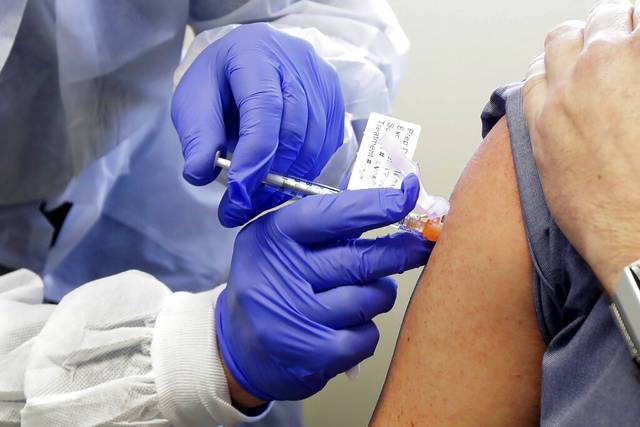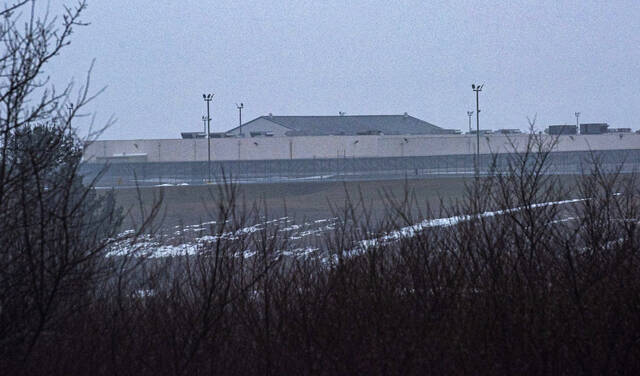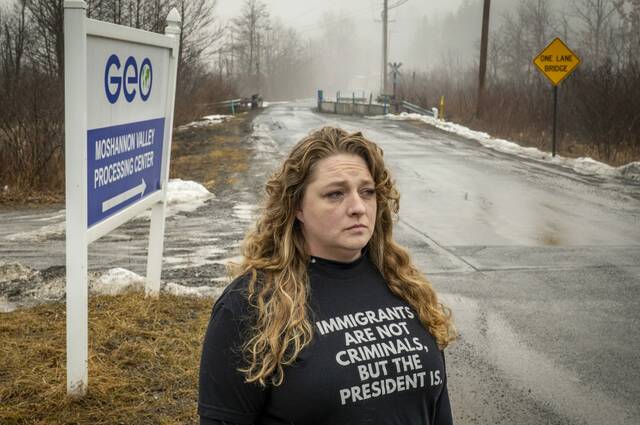Russia declared on Tuesday its covid-19 vaccine was ready for public use — an announcement met with global skepticism.
While Russian President Vladimir Putin insisted the vaccine had proven to be efficient and had undergone proper testing, some health experts warned that it’s ill-advised to begin using a vaccine before completing sufficient trials, which the Russian vaccine has yet to begin.
Dr. Amesh Adalja, a Pittsburgh-based infectious disease and critical care physician and senior scholar at the Johns Hopkins Center for Health Security, said Phase III trials — when a potential vaccine is tested on thousands of people to gauge side effects and real-world efficacy — are imperative.
“I don’t think there’s any confidence that there’s been enough safety and efficacy data on the (Russian) vaccine in order to make the statement that this is a solution,” Adalja said. “There’s great promise in a lot of the vaccines that are being developed, but it’s important we have data from Phase III trials.”
Dr. Andrea Gambotto, associate professor of surgery at the University of Pittsburgh School of Medicine and co-creator of the Pittsburgh Coronavirus Vaccine, known as PittCoVac, offered a different perspective. He said Russia’s plan to expand vaccinations isn’t really that different from a Phase III trial.
“They are just expanding to a larger population. What they call approval is probably not what we consider approval,” Gambotto said. “The terms are kind of different, but there is nothing in their vaccine that is apparently unsafe.”
Gambotto said every country is racing to be the first to produce a vaccine. He said the apparent rush is justified, citing the severity of the pandemic and its impact on economies worldwide.
“Some cutting corners could be justified because (of) the nature of this pandemic. I don’t want to say that it’s acceptable, but it’s not outrageous. We unfortunately cannot afford to spend all this time. We need to get a vaccine out there,” he said.
But Adalja said American researchers aren’t cutting corners — and Russia shouldn’t be either. Adalja emphasized that most countries, like the United States, aren’t skimping on safety and efficacy research.
“The fact that we’re already conducting Phase III trials — that’s the biggest evidence that they’re not jumping ahead,” Adalja said of coronavirus vaccine candidates in the U.S.
Adalja said he’s concerned that issues with the Russian vaccine — which hasn’t undergone Phase III trials — might make people more hesitant of any covid-19 vaccine, even those that have gone through proper trials. He noted that many Americans already are wary of covid-19 vaccines, a phenomenon he referred to as a “vaccine hesitancy movement.”
If the Russian vaccine causes negative side effects or isn’t as effective as people expect, Adalja said, it’ll only make it harder for medical professionals to bolster confidence in other coronavirus vaccines, even those that have been proven safe and effective in Phase III tests.
“I think the manner the Russians are doing is not really advisable. It’s going to erode public confidence,” Adalja said.
Gambotto, however, said he’s confident in the Russian vaccine.
“We believe this is safe technology. I’m not particularly afraid the vaccine is going to be a very bad vaccine,” he said. “From a scientific point, I think this vaccine is going to be better than most vaccines out there. I like it. It’s well-designed.”
Gambotto said initial studies showed safety and efficacy, which means it should be tested on a larger population. He also noted it’s similar to other vaccine candidates, both in its scientific technology and in its rapid advancement.
Rather than questioning Russia’s covid-19 vaccine, Gambotto said people should be glad to see so many vaccine candidates moving forward.
“We don’t know yet which is going to be the best vaccine,” Gambotto said. “It’s going to be a race. We’re all going to benefit from this race.”
According to Adalja, a vaccine — one that has been through proper Phase III testing — should be available in 2021. But it will take time to scale up production and distribute the vaccine to the general public.
Adalja said the vaccine will likely be offered to priority groups such as health care workers or high-risk individuals before it’s available to the general public. It likely will take several months to vaccinate a large enough population of Americans to achieve herd immunity. Until then, Adalja expects social distancing guidelines and limits on large gatherings to remain in place.
In the meantime, Adalja is watching the Russian vaccine.
“We’ll have to study all the Russian data when it emerges and use it to help us understand our vaccine,” Adalja said. “If certain signals, good or bad, emerge from that data, that just adds to the information we have.”








